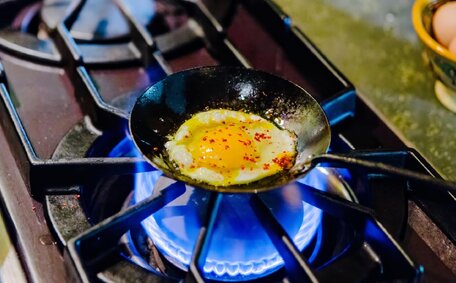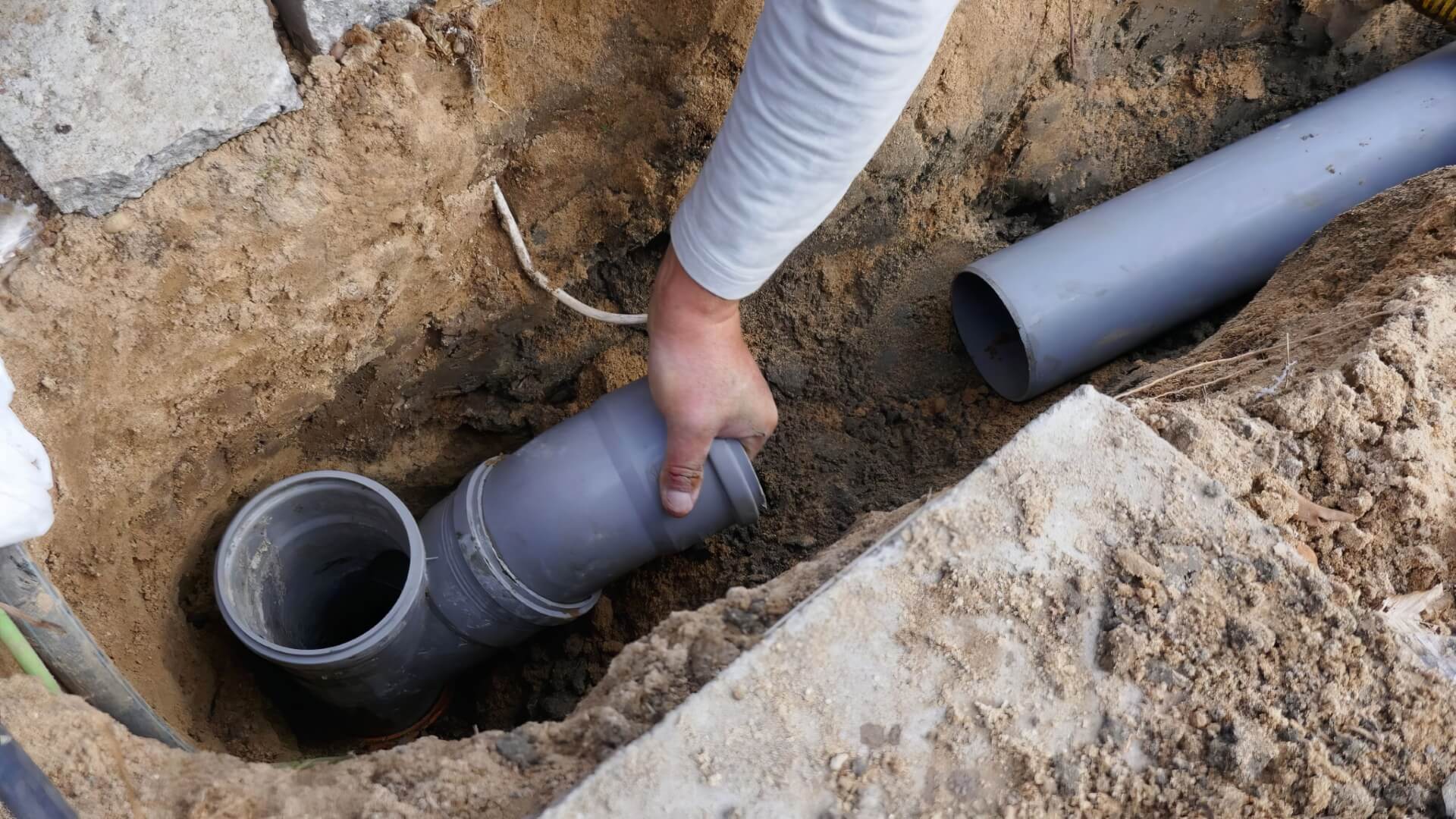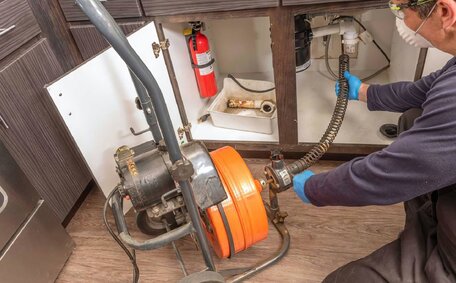Introduction to Pipe Relining
Sewer pipe relining is a trenchless repair technique that restores damaged pipes without necessitating excavation or complete replacement. This method inserts an epoxy resin liner into the existing pipe, effectively creating a 'pipe within a pipe’ and serving as a revolutionary alternative to traditional repair methods. Compared to traditional pipe replacement, relining stands out as more cost-effective, faster, and less disruptive.
Here in Drummoyne, Sydney, the best pipe relining can be utilised to rectify a compromised drain sewer system, as well as mend storm water systems and plumbing pipes across various property types. By avoiding extensive excavation works, this no dig solution prevents damage to landscaping, driveways and other structures, Pipe relining also generates less waste when measured against conventional pipe repair techniques.
The relining process includes cleaning and inspection, followed by the air pressure-assisted insertion of the epoxy liner. As it cures, it forms a smooth, seamless and corrosion-resistant new pipe. Relined pipes become more robust than their originals, as the new linings reinforce them against damage and blockages.
Our relining services ensure repairs that include drain cleaning and tackle blocked drains without interfering with the standard functioning of your plumbing and sewer systems, encapsulating the principle of 'pipe relining your’ domestic tranquility. Pipe relining can address the most common issues such as tree roots intrusion, cracks, leaks, corrosion and a blocked drain among others. Overall, we would highly recommend our pipe relining solutions, heralding a swift, effective, and affordable approach to resolving blocked pipes in Drummoyne and surrounding zones.
How the Pipe Relining Process Works
The pipe relining process follows these straightforward key steps:
- Initial CCTV inspection - High-resolution cameras are used to meticulously inspect and analyse the interior pipe condition. This identifies damaged sections and helps ascertain if the relining process been suitable.
- Drain pipe cleaning - Any debris blockages, grease build-up, scale, roots or other impediments are meticulously excised from the pipes utilising specialised apparatus.
- Relining preparation - The pipe is prepared for relining by sealing off connection points and installing an inversion bladder at one end.
- Epoxy resin installation - The epoxy resin liner is inserted into the sewer drain pipe using compressed air, establishing a new lining that is jointless and robust.
- Curing and hardening - By regulating the duration for which the epoxy resin liner is cured, often with hot water steam, the heat causes it to harden into a durable, corrosion-resistant new pipe.
- Final CCTV inspection - Cameras inspect the relined pipe to ensure smooth installation and identify if any spots require touch-ups.
- Reconnection - Once fully cured, lateral connections and services are reconnected. The pipe is now restored without digging or replacement.
The pipe relining process allows for structural renewal of damaged pipes from 15mm up to 1200mm in diameter. It is a minimally invasive technique that restores flow capacity and provides long-term performance.
In Drummoyne, Sydney, opting for pipe relining negates the need to dig up flooring, driveways, or landscaped areas, thus suiting both residential and commercial properties.
The outcome is comprehensively rejuvenated piping, often outperforming the original structure for a fraction of the cost. Pipe relining is both advanced and cost-effective, providing a solution without the mess and disruption typical of traditional methods.
Completion within 1-3 days ensures no interruption to your plumbing service. Drain relining can address cracks, leaks, root intrusion, corrosion and other common issues.
The Depth Capabilities of Pipe Relining
Pipe relining reaches significant depths, showcasing its versatility as a pipe repair solution. Most systems can reline pipes from 50mm to 250mm in diameter, and lengths of 50 metres or more in a single section.
The maximum depth achievable by drain relining is influenced by site-specific conditions such as:
- Pipe material - Clay, concrete, PVC, HDPE etc. Each has different pressure tolerances.
- Pipe condition - Severely damaged pipes may need extra preparation or reinforcement.
- Pipe configuration - Simple straight runs versus complex pipe layouts and bends.
Pipe relining’s depth potential varies, with some successful applications reaching up to 60 metres. Technological advances also allow relining of ever deeper and longer pipe sections.
Our team evaluates how pipe relining benefits cater to our patrons’ individual layouts and particularly your pipe conditions, affirming the feasibility and scope of the relining. We work around obstacles to access and reline pipes at depth where possible. Proper planning and preparation, which take into account various factors, enables pipe relining to restore deep buried pipes across Sydney.
In essence, pipe relining is capable of treating pipes up to 50 metres deep, with depth capacity subject to site-specific conditions. Engage with our plumbing experts to discuss relining solutions for your deeply buried pipes.
When to Consider Relining vs Replacement
One should choose pipe relining over complete replacement when it can be executed without the need for disruptive groundwork:
- If damage is confined, relining can mend cracks, minor collapses, and root encroachment. It works best if pipe defects can be relined and are not too extensive.
- The original pipe layout can be maintained - Pipe relining services follow the path of the existing pipe so complex layouts are usually fine.
- Accessing pipes requires demolition - Relining prevents the inconvenience of digging up your floors, driveways, landscaped areas etc.
- Disruption must be minimised - Relining takes just 1-3 days with no plumbing service interruption.
- Long pipe sections need repair - Relining can efficiently rehabilitate lengths of 50+ metres of drainage pipes in one go.
- Deep pipes are affected - Relining can reach depths up to 60+ metres depending on site conditions.
- Should cost savings be a focus, know that pipe relining far outweighs in value, with prices typically found to be 25-50% lower than full pipe replacement costs.
- Environmental impact is a concern - Relining generates minimal waste compared to traditional replacement.
However, full pipe replacement may be preferable when:
- Pipes are extensively damaged - Severe corrosion, collapsed sections or other major defects.
- Diameter increase is required - Relining maintains the same diameter as existing pipes.
- Complete layout change is needed - Relining follows the existing path so cannot reroute.
- Asbestos pipes must be removed - Relining encapsulates rather than removes hazardous materials.
Our skilled team will select pipe relining inspection techniques fitting for your pipes, ensuring you will be very happy with insights on what you need know about for the perfect outcome. Relining avoids most of the mess and disruption of full replacement. Contact us to discuss options for restoring your pipes effectively.
The Longevity and Durability of Relined Pipes
Relined pipes can last for decades, showing how they often outperform the lifespan of the original pipes. A quality epoxy resin liner that is properly installed and cured can provide much-needed durability for cracked broken pipes, offering 50+ years of reliable service.
Epoxy resins used for relining are engineered to stringent standards, resulting in liners that are extremely durable and corrosion resistant. The resin can also form a jointless, seamless lining that restores structural integrity and enhances flow capacity. Relined pipes have high compressive strength and impact resistance.
Proper curing solidifies the epoxy resin, fortifying your pipes with robust infiltration and abrasion resistance. Relined pipes often exceed pressure ratings of the original pipe and can withstand years of use with minimal wear.
Regular CCTV inspections facilitate proactive maintenance and repairs, ensuring the sustained integrity of your piping system. But in most cases, relined pipes provide enhanced performance and longevity that can last for generations without requiring re-excavation or replacement.
With superior durability compared to deteriorating pipes, quality relining is a long-term solution. The process remedies not only immediate plumbing issues but also extends the lifespan of plumbing networks for future generations.
The Cost and Time Savings of Pipe Relining
Contemplating the advantages as communicated; one individual queried, is pipe relining worth a judicious investment? Absolutely, for significant cost and time savings compared to conventional pipe replacement. On average, relining costs 25-50% less than digging up and replacing old pipes.
The non-invasive characteristic of pipe relining answers inquiries about drain repair expenses by curtailing costs related to excavation and restoration, confirming it was very reasonable. Specialised excavation equipment becomes unnecessary, as trench-digging is not required.
You may wonder how long does pipe relining takes; it just requires 1-3 days to complete with no service disruption. Replacement can take weeks, requiring properties to go without plumbing in the interim. This leads to more labour costs and greater inconvenience.
For your home here in Drummoyne, relining prevents driveway, landscaping, and structural damage that pipes how replacement methods often cause. The minimal disturbance makes it ideal for homeowners.
Commercial buildings in the area benefit from uninterrupted plumbing during business hours. Relining avoids revenue losses from closure during repairs.
Faster turnaround times and reduced material and labour costs underscore pipe relining’s affordability. Pipe relining costs are reasonable, representing excellent value for our clients in Drummoyne, Sydney.
Pipe Relining Materials and Quality Standards
Quality sewer line relining uses epoxy resin that meets stringent standards for strength, durability and chemical resistance. Premium grades contain 100% solids with no solvents and can withstand pressures over 10,000 PSI once cured.
Reputable companies like Emu Plumbing only use industry-approved epoxy resins that are specially formulated for relining sewer pipes. With their high density and low viscosity, these resins thoroughly coat the interior surface of sewer pipes.
Properly installed epoxy liners form a jointless, seamless barrier that protects against corrosion and abrasion. They have excellent adhesion properties to bond tightly with the existing pipe walls. Quality liners are impact resistant and won’t crack under pressure.
We adhere to industry-leading standards in the relining business to ensure each relining job did a great job with first-rate resin characteristics you need to know about pipe. Our technicians were very professional, ensuring the liners are fully hardened, which is something you need know about pipe relining to appreciate its extended service life.
Employing premium materials and correct installation techniques, we procure enduring relining outcomes for your sewer conduits, reinstating structural soundness to compromised plumbing networks. Contact us today to learn more about our commitment to quality and durability.
Pipe Relining for Different Pipe Types
Given its adaptability across a range of materials, consider pipe relining for diverse pipe types and contact us for guidance.
Common pipes suitable for relining include:
- Copper pipes - Relining renews old copper plumbing and eliminates pinhole leaks.
- Cast iron pipes - Restores structural integrity to corroding cast iron drain pipes.
- PVC/Plastic pipes - Effective for repairing cracked or broken plastic sewer and plumbing lines.
- Concrete pipes - Renews concrete stormwater and sewer pipes without excavation.
- Clay pipes - Handles cracks and root intrusion in older clay sewer lines.
- Steel pipes - Ideal for restoring steel pipelines with corrosion damage.
Pipe relining is adaptable to various situations and a spectrum of pipe materials, including:
- Sewer mains and lateral connections
- Underground stormwater drainage
- Potable water lines
- Above ground plumbing pipes
- Vertical downpipes and stacks
Our adept technicians decide on the optimal relining strategy for all pipe varieties, so we recommend them, inspiring confidence that they’d inspire trust again, given our consideration for diameter, damage extent, and configuration. We would highly recommend our tailored process to achieve effective repairs and lasting outcomes for a variety of plumbing systems.
Whether it’s broken pipes, leaking plumbing or deteriorating stormwater pipes, pipe relining offers a proven solution. Contact us today to discuss pipe relining for your specific needs.
Preparing for a Successful Pipe Relining Project
Proper preparation is crucial to ensure the relining procedure is smooth and yields durable results. Initially, a comprehensive CCTV drainage inspection is conducted to evaluate pipe condition, pinpoint blockages or flaws, and confirm the suitability of relining.
We will discuss inspection outcomes and custom solutions tailored to your specific needs and pipe damage. With approval, we schedule work and make sure to advise how to prepare, especially advising commercial sites to inform their staff about potential plumbing disruptions.
For residential settings, ensuring access for outdoor pipes and strategizing for single bathroom utilisation during relining are key to preventing any potential damage to your property.
Safeguarding against service interruptions also warrants preparation. We isolate only sections in the process of relining but advise on shutting off the water supply to prevent inadvertent use—rest assured that any disruption will be swiftly resolved. Finally, we conduct pre- and post-relining CCTV and testing to validate repairs.
With adequate planning, inspection, isolation and contingency measures, pipe relining is a smooth, effective solution. Our team handles preparation so you can gain peace of mind knowing your plumbing system will be restored to optimal condition.
Addressing Common Concerns and Myths
Misunderstandings about pipe relining, especially regarding the types of pipes it can repair and its benefits, are common.
A frequent concern is that the smaller diameter of relined pipes will reduce water flow rates. Quality epoxy resins create an exceptionally smooth interior that nearly restores the flow capacity to its original state. Professional relining companies like yours truly - the local drain man, use CCTV inspections and flow testing to validate optimal water volumes.
There are also doubts about relining reaching depths beyond 10 metres. But with the right materials and technique, relining can rehabilitate pipes up to 60 metres deep in some situations. The depth capabilities continue to improve with evolving technologies.
While pipe relining has limitations, many concerns stem from outdated information or what you need to know about pipe relining. Modern relining uses advanced epoxy resins and installation methods that deliver long-term solutions. Through clear communication, expert knowledge, and demonstrated results, we dispel these misconceptions.
Contact our team if you have any uncertainties about pipe relining for answers and guidance. We’re happy to address your concerns and provide what you need to know so you can make the right decision for your plumbing needs.






